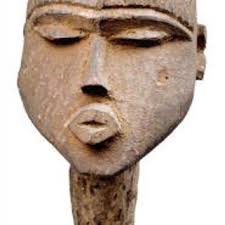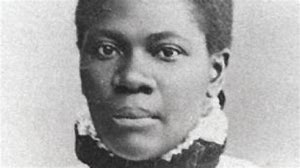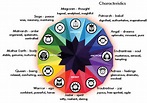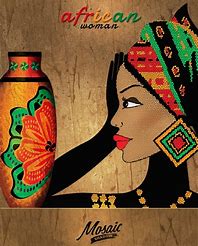SMART SEARCH
Mark Hoppus has stage 4 lymphoma










Mark Hoppus has stage 4 lymphoma
Mark Hoppus is battling an aggressive form of lymphoma.
The Blink-182 star revealed last month he’s undergoing chemotherapy for cancer and he’s now shared further details about his illness, including the fact his blood is “trying to kill” him and he’s been diagnosed with a stage four form of the disease.
In a Twitch Q&A with Chilean fans, he said: “[I have] diffuse large B-cell lymphoma.
“My classification is stage IV-A, which means, as I understand it, it’s entered four parts of my body. I don’t know how exactly they determine the four part of it, but it’s entered enough parts of my body that I’m stage IV, which I think is the highest that it goes.
“So, I’m stage IV-A…The cancer isn’t bone-related, it’s blood-related. My blood’s trying to kill me.”
The ‘What’s My Age Again’ rocker has been undergoing intensive chemotherapy and has found the side effects tough.
He said: “The first chemo, I felt like I was a zombie that fell onto an electric fence and was just being shocked.
“The second round of chemo, I just felt very weak and tired. Really just like the worst flu ever. The third round of chemo, I started retching. Nauseous and that whole thing.”
Mark’s mother has battled the “exact form” of cancer he’s been diagnosed with so she’s proven to be a great source of help and support.
He said: “Oddly enough, we have the exact form of cancer.
“And she beat it, so I’ve been able to talk to her and bond with her quite a bit.”
The 49-year-old rocker has lost his hair as a result of his treatment but he’s managed to see the funny side.
He said: “I want to get the absolute worst toupee, so that it’s obviously not my hair, and just walk around and see how people look at me.”
Reference: Bang ShowBix: Bang Showbiz
Steroids are life-saving for critically ill COVID-19 patients, WHO says







Steroids are life-saving for critically ill COVID-19 patients, WHO says
There's yet more evidence that cheap, widely available steroids can help save the lives of critically ill COVID-19 patients. In a new analysis that included data from seven clinical trials, the drugs reduced the risk of death among patients by one-third, compared with patients given only standard care.There's yet more evidence that cheap, widely available steroids can help save the lives of critically ill COVID-19 patients. In a new analysis that included data from seven clinical trials, the drugs reduced the risk of death among patients by one-third, compared with patients given only standard care.
Based on the analysis, the World Health Organization (WHO) updated its treatment guidelines for corticosteroids, recommending that those with a severe COVID-19 infection receive the drugs for seven to 10 days as their new standard of care. Those with mild infections shouldn't get steroids because "current data indicated they would not likely derive benefit and may derive harm" from taking the drugs, the guidelines state.
The new analysis was published Sep. 2 in the Journal of the American Medical Association (JAMA).Early on, there were hints that steroids could be life-saving for COVID-19 patients. For instance, data from China, published in March in JAMA Internal Medicine, suggested that corticosteroids could reduce deaths among coronavirus patients with "acute respiratory distress syndrome" (ARDS) — a condition where the lungs become severely inflamed and their air sacs fill with pus.

In June, U.K. researchers reported that a steroid called dexamethasone reduced the death rate among COVID-19 patients who required oxygen, either through ventilation or less-invasive methods, Live Science previously reported.
But that research had not yet been peer reviewed.
"Without access to full trial details, clinicians were uncertain whether to begin using dexamethasone in patients hospitalized with COVID-19, and if they used it, how they should implement it in practice," professors of medicine Hallie Prescott and Todd Rice wrote in an editorial about the new analysis, also published today in JAMA.
That said, "there has been widespread adoption of steroids in the care of critically ill patients with COVID-19" since the U.K. report came out, Dr. Nahid Bhadelia, medical director of the Special Pathogens Unit at the Boston University School of Medicine, told Stat News. "This is particularly true in many resource-limited countries where I work," she noted, given that dexamethasone is cheap and easy to get.
Dexamethasone works by suppressing the immune system and reducing inflammation in the body, and is commonly prescribed for psoriasis, rheumatoid arthritis, asthma and some cancers, such as leukemia, Live Science previously reported. In the new analysis, the researchers looked at trials that tested either dexamethasone or one of two other steroids, hydrocortisone and methylprednisolone.
All the drugs similarly dampen the immune response, cause blood vessels to constrict and help to reduce fibrosis, or the development of thick scar tissue, according to the JAMA editorial.
According to the analysis, all three steroids reduced patient mortality at similar rates; overall, the authors calculated a 34% reduction in the risk of death among critically ill patients given steroids compared with those given standard care, Stat News reported. Overall, only 18% of those taking steroids reported serious side effects, compared with 23% of those given standard care; within individual trials, these relative rates differed, but in most of the studies, steroids weren't associated with a higher risk of side effects.
The new analysis should dispel any remaining doubts about administering steroids to critical COVID-19 patients, Dr. Todd Rice, an associate professor of medicine and critical care physician at Vanderbilt University School of Medicine, told The New York Times. Previous studies of the coronaviruses SARS-CoV and MERS-CoV suggested that steroids might hobble the immune system as it attempts to fight off the pathogens, but that doesn't seem to be a big concern here, according to the JAMA editorial.
The benefits of steroids outweigh the risks to critical COVID-19 patients, although "the exact threshold at which an individual patient should be prescribed corticosteroids remains unclear," Prescott and Rice wrote in the editorial. For example, there are different forms of acute respiratory distress syndrome, and steroids may relieve one form of ARDS more effectively than another, they noted. Further research should reveal who exactly should be given steroids, at what dose and when in the course of their illness.
Reference: Live Science: Nicoletta Lanese 15 hrs ago: 02/09/2020 : Originally published on Live Science.
African Holistics - Seduced by Ignorance and Research






African Holistics - Seduced by Ignorance and Research
Research is used to investigate a subject in order to find facts. However, research as used by Europeans has other meanings. Europeans have an overabundance of research projects and institutions and devote large sums of money to them. When you research any subject it means that you lack knowledge about the subject. In other words, your are ignorant of the subject and research will gain you knowledge about the subject. In this case we have a civilization (European) that is ignorant.
African civilization did not and has not lacked knowledge. Ancient Africa was the first civilization that used its vast knowledge base to master technology and holistic medicine. The major problem that the Europeans have with African functional research is that it is holistic. It is written by using words as structural, mental and spiritual symbolism called homonyms (identity by Europeans).
This rythmatic conceptual, organic and cyclical written language of Africans used to explain a cyclical, organic and rythmatic conceptualized science is difficult for Europeans to comprehend. Consequently, Europeans have devised a way to translate and fragment African science so that they can understand it.They call this fragmented translation "Research".
They use non- holistic laboratory studies, statistics and experiments to understand African functional research. It is obvious that the Pyramids took functional research established over 5'000 years before they were built. In other words , the research era in Africa was over and only products of past research appear such as the pyramids of Giza. The functional research for holistic medicine was arrived at long before the ancient texts (papyrus) were written.
Written documents evidence that African functional research was done holistically. The Turin Papyrus is 54,000 years old (11th to 12th Dynasties) The 12th to 13th dynasties include the Ramesseum papyrus and the Kahun papyrus. The 18th dynasty has the Ebers papyrus, the Hearst and Edwin Smith papyrus are full text, comprehensive and are used more and more by holistic medical scholars.
The creation and introduction of medical terms is African. These papyri and other writings gave the world these terms: Kidney, saliva, dura mater, sarrow, testicles. bucca cavity, esophagus, brain, throat, tongue, bile, urine, uterus, vulva, stomach, ear, intestines, trachea, lung, spinal cord, heart, eye, disease, rectum, diaphragm, labia, vagina, perspiration, liver gall bladder, baldness, muscle, cerebraspinal fluid, spleen, air, obesity, bone, abdomen and many other terms. This indicates beyond a shadow of a doubt that research was done and knowledge obtained by Africans.
The constant demand of Europeans for scientific proofs, statistics and research documentation is their search for knowledge . Once the knowledge is translated and applied in a scientific way, Europeans label the research "modern" or a recent discovery. This word "modern" makes you forget that the research was already done. Much of European research is knowledge rape of African research and a form of racism and cultural bias.
The European rediscovery of African knowledge by contemporary Europeans should be properly labeled primitive and ancient. They seduce themselves into believing that gynocology, opthalmology and other medical sciences are modern when in fact, Athotis, the son of Mena (circa 3,000 BC), wrote an encyclopedia on the subject of medicine to compound this ignorance, non-holistic, non-Africentric, and racist historians such as Diodorus, Strabo, Herodotus and Monetho personally reported on the research on ancient Africa.
However, this fact is ignored by "modern" day European scientists and historians. These cultural spies (historians) helped to create the present historical ignorance. Europeans in search of knowledge have invented a new ignorance called "research" and have become seduced by their own ignorance. An Afri-centric scientist must use Afri-centri research in its fullness in order to maintain the health of our race.
Reference: African Holistic Health: (Third Edition) Llila O. Afrika: Dick Gregory
Home














Earth-essences.com provides articles on the theories of “Integrative medicine” which refers to the incorporation of evidence-based complementary therapies into conventional treatments for patients.
Complementary and alternative medicine (CAM) is the popular name for health care practices that traditionally have not been part of conventional medicine. In many cases, as evidence of efficacy and safety grows, these therapies are being combined with conventional medicine.
Thus, the term alternative has been dropped and replaced with newer terms, such as complementary and integrative medicine, integrative medicine and health, or just integrative medicine.
|
World Current News |
|
|
|
|
|
|
|
|
Why it's done
Integrative medicine can help people with cancer, persistent pain, chronic fatigue, fibromyalgia and many other conditions better manage their symptoms and improve their quality of life by reducing fatigue, pain and anxiety. Examples of common practices include:
- Acupuncture - Animal-assisted therapy - Aromatherapy - Dietary supplements - Massage therapy - Music therapy - Meditation
Risks
The treatments promoted in integrative medicine are not substitutes for conventional medical care. They should be used in concert with standard medical treatment.
Certain therapies and products are not recommended at all or not recommended for certain conditions or people. The National Center for Complementary and Integrative Health is a good tool for researching a therapy you're considering. It's also important to talk with your health care provider before trying something new.
|
|
|
|
|
Integrative medicine is meant to work in conjunction with traditional medicine, providing a more holistic approach to healing — mind, body, and spirit..
Integrative Medicine treats the whole person, not just the Disease. Reference: Mayo Clinic
Go Fund Me Link -Thank you : https://www.gofundme.com/f/fund-our-supportive-articles-on-integrative-medicine
Who's On Line?
We have 77 guests and no members online
Articles - Most Read
- Home
- LIVER DIS-EASE AND GALL BLADDER DIS-EASE
- African Wholistics - Medicines, Machines and Ignorance
- African Wholistics -The Overlooked Revolution
- African Holistics - Seduced by Ignorance and Research
- Want to slash the risk of dementia by a third? Sort out your hearing!
- Advertising
- Steroids are life-saving for critically ill COVID-19 patients, WHO says
- Mark Hoppus has stage 4 lymphoma
- 45-year-old woman damages liver from drinking herbal brew - dangerous 'side effects' Story by Solen Le Net •
- Women's Sex Organ Related Dis-eases ( Herpes, V.D., Etc.)
- The health problem plaguing female Olympians as 'pee flies through air' during competition
- Four types of freshwater fish 'globally' associated with rhabdomyolysis - study warning
- Okra: Nutrition tips from experts
- Do Yams Have Carbohydrates?
- The Male G Spot Is Real—and It's the Secret to an Unbelievable Orgasm
Articles - Latest
- 6 Things to Try When You Can’t Sleep
- The Male G Spot Is Real—and It's the Secret to an Unbelievable Orgasm
- Herbs for Parasitic Infections
- Vaginal Care - From Pubes to Lubes: 8 Ways to Keep Your Vagina Happy
- 5 Negative Side Effects Of Anal Sex
- Cartilage comfort - Natural Solutions
- Top 5 health benefits of quinoa
- Quickly Drain You Lymph System Using Theses Simple Techniques to Boost Immunity and Remove Toxins
- Do Yams Have Carbohydrates?
- 45-year-old woman damages liver from drinking herbal brew - dangerous 'side effects' Story by Solen Le Net •
- Four types of freshwater fish 'globally' associated with rhabdomyolysis - study warning
- Okra: Nutrition tips from experts
- Advertising
- The health problem plaguing female Olympians as 'pee flies through air' during competition
- Women's Sex Organ Related Dis-eases ( Herpes, V.D., Etc.)
- Mark Hoppus has stage 4 lymphoma
- Steroids are life-saving for critically ill COVID-19 patients, WHO says
- Want to slash the risk of dementia by a third? Sort out your hearing!












